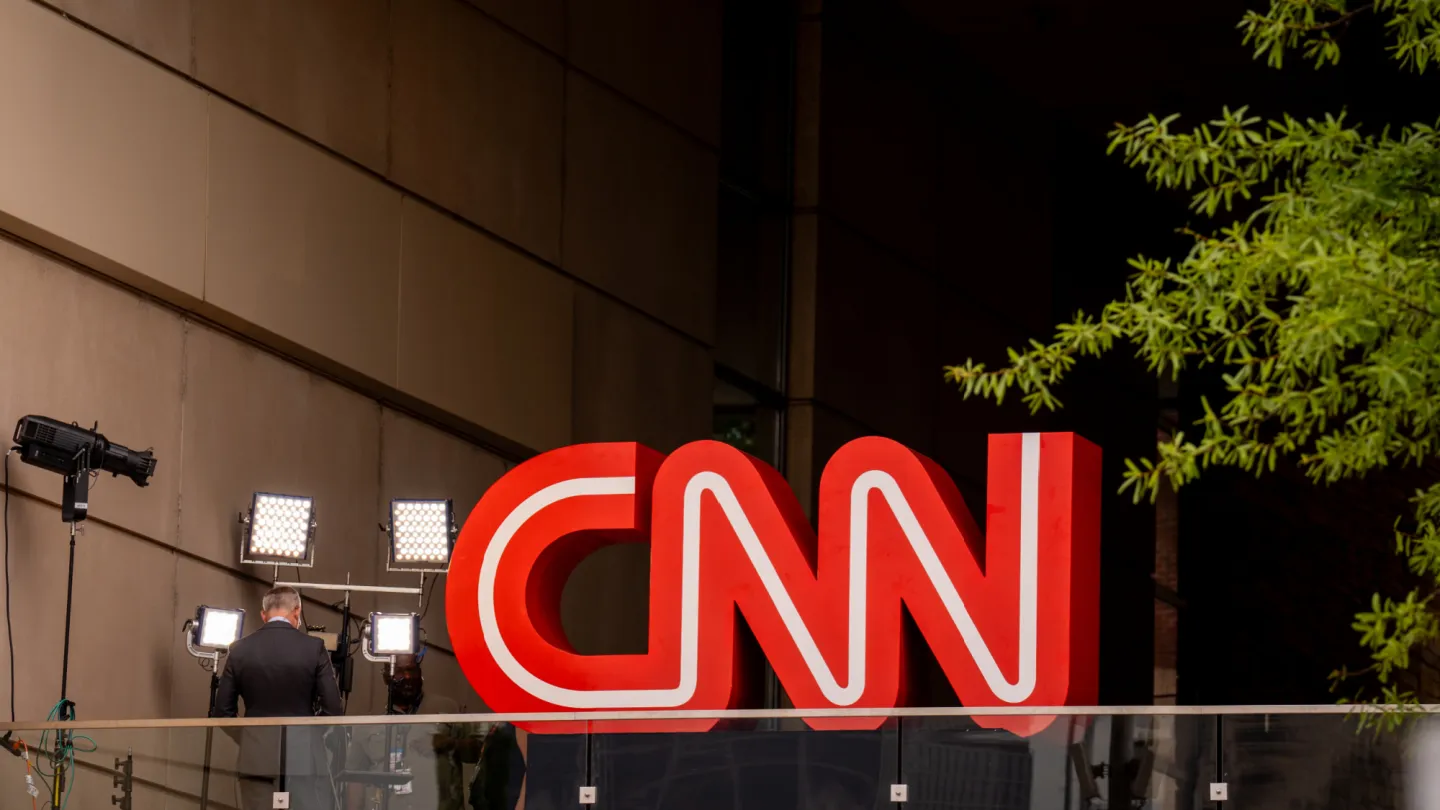CNN has been dealt a severe blow in a defamation case brought by Navy veteran Zachary Young. A jury awarded Young $5 million in compensatory damages over a 2021 segment accusing him of unethical conduct during the U.S. withdrawal from Afghanistan. The jury is still deliberating punitive damages, leaving the embattled news network bracing for a potentially higher financial hit.
This ruling exposes CNN’s reckless reporting practices and has reignited criticism of its journalistic integrity. For a network already grappling with plummeting ratings and revenue, this legal defeat couldn’t come at a worse time.
Give Me News Podcast
The controversy centers on a segment from The Lead with Jake Tapper, which aired during the chaotic aftermath of President Joe Biden’s disastrous withdrawal from Afghanistan. The segment alleged corruption in evacuation efforts, including exorbitant fees on the black market, and singled out Zachary Young as a key player.
Young, a Navy veteran and private contractor, was painted as a profiteer exploiting desperate Afghans fleeing Taliban control. The allegations severely damaged his reputation, prompting him to file a defamation lawsuit in 2022.
Young’s lawsuit argued that CNN’s segment was not only misleading but maliciously crafted to use him as a scapegoat for a larger narrative about corruption. His legal team presented compelling evidence that the network’s executives deliberately targeted him to sensationalize the story.
During the trial, text messages from CNN executives and journalists surfaced, exposing a deliberate effort to make Young the face of their narrative. One message from journalist Alex Marquardt to the network’s senior vice president of news, Adam Levine, read, “We gonna nail this Zachary Young mf**ker.”
Levine had reportedly pressured Marquardt to find someone to blame for alleged corruption in evacuation efforts. This evidence painted a disturbing picture of a newsroom prioritizing sensationalism over fairness, with Young caught in the crossfire.
Judge William Scott Henry, who presided over the trial, criticized CNN’s attorney, David Axelrod, for his conduct in court. Axelrod faced backlash for calling Young a liar, with the judge suggesting he owed the veteran an apology.
The $5 million compensatory damages mark a significant financial loss for CNN, but the jury’s pending decision on punitive damages could escalate the cost. For a network already reeling from declining revenue and historic lows in viewership, this case underscores its growing challenges.
Following President Donald J. Trump’s landslide victory in the 2024 election, CNN’s prime-time viewership plummeted by 13%. By mid-2024, the network hit a three-decade low in ratings, reflecting a steady erosion of public trust.
This legal defeat compounds CNN’s credibility crisis, reinforcing perceptions that it prioritizes sensationalism over truth. Critics argue that the network’s decision to target Young demonstrates a troubling disregard for journalistic ethics.
For Young, the verdict represents a hard-fought victory. The accusations aired by CNN not only harmed his reputation but also affected his livelihood. After enduring public scrutiny and professional setbacks, the jury’s decision provides some measure of justice.
“This case was about more than just clearing my name,” Young stated after the verdict. “It’s about holding powerful media organizations accountable for the damage they can cause when they put narratives above facts.”
Young’s legal victory sends a strong message to media outlets: reckless reporting comes with consequences.
The case raises serious questions about CNN’s editorial practices and internal culture. The deliberate targeting of Young, as revealed by internal communications, highlights a broader problem within the network—a willingness to sacrifice individuals for sensational headlines.
Critics argue that this case is emblematic of a larger issue in mainstream media: the pursuit of political narratives at the expense of truth. CNN, once a trusted name in news, has increasingly faced accusations of bias and ethical lapses.
The pending decision on punitive damages could deepen the financial strain on the network, forcing it to confront its failings. However, whether CNN will take this opportunity to reform its practices remains uncertain.
CNN’s loss in this case is not just a legal defeat; it’s a wake-up call for the broader media industry. The verdict underscores the importance of journalistic integrity and the dangers of prioritizing sensationalism over truth.
For Zachary Young, the $5 million verdict is a vindication of his fight for justice. For CNN, it’s a stark reminder that irresponsible reporting can have costly consequences.
As the network grapples with the fallout, it faces a critical question: will it learn from this debacle, or will it continue down the path of reckless sensationalism? The answer could shape the future of CNN—and its place in the media landscape.

